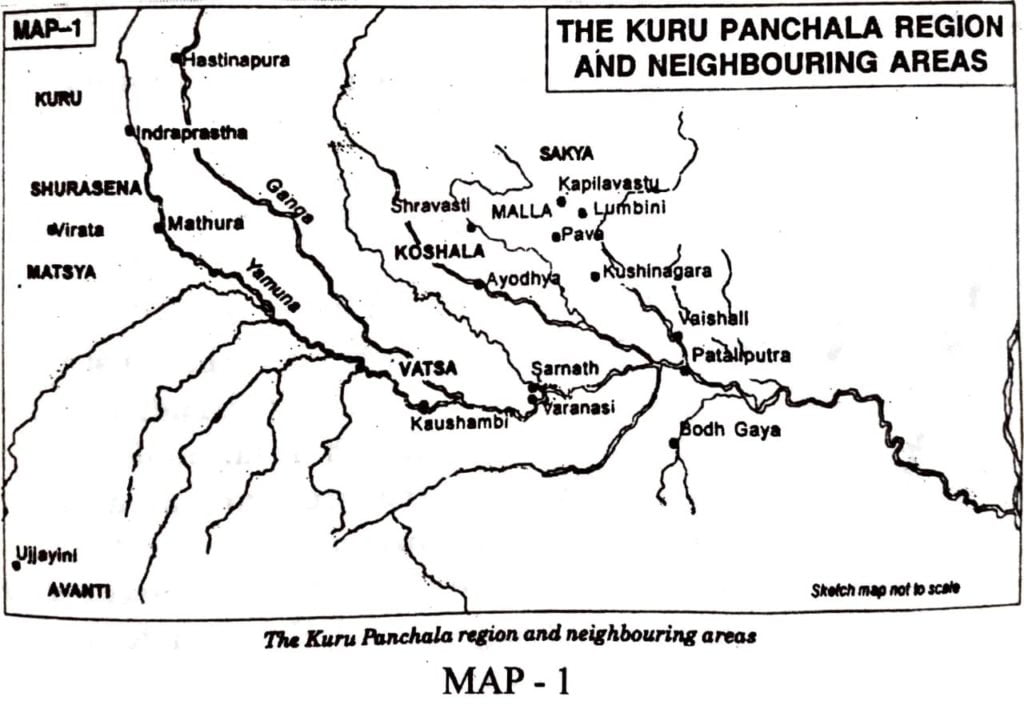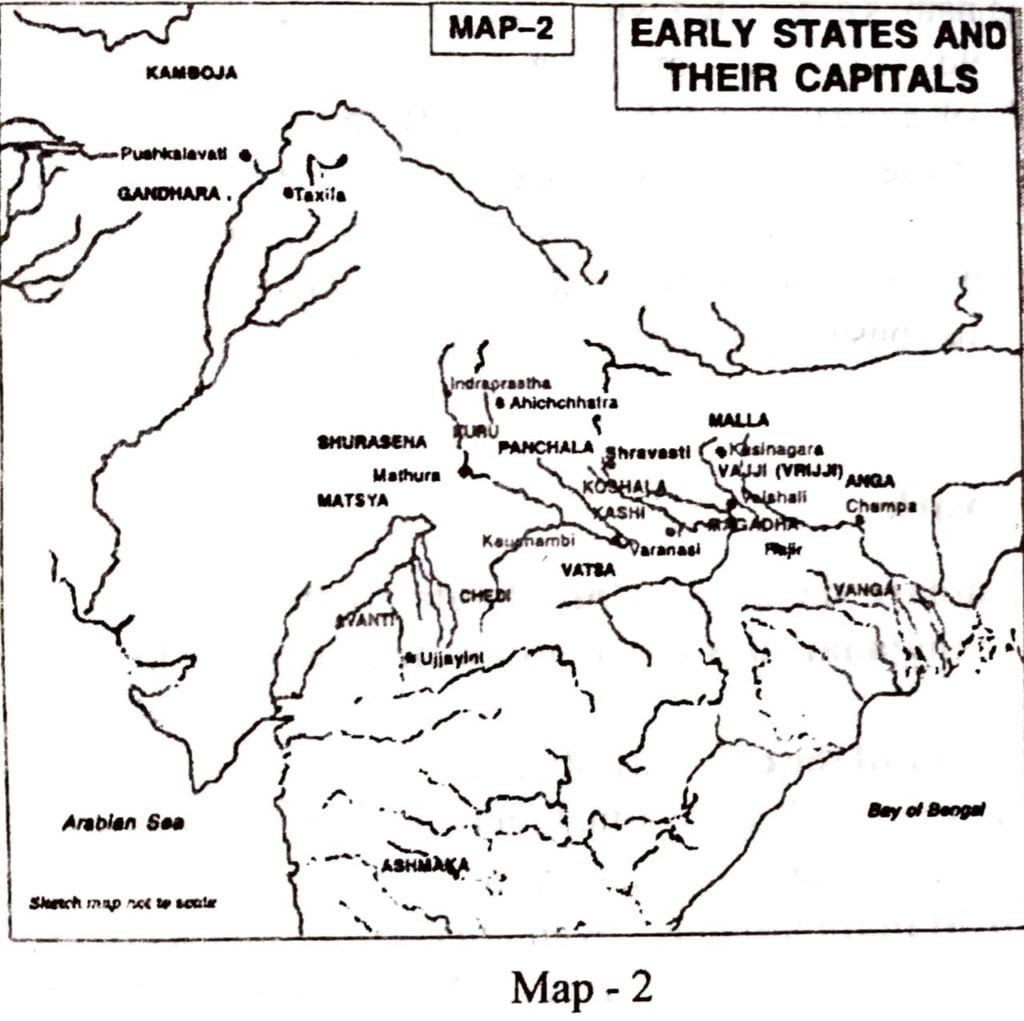Class 12 History Chapter 3 Kinship Caste And Class The answer to each chapter is provided in the list so that you can easily browse throughout different chapters Assam Board HS 2nd Year History Chapter 3 Kinship Caste And Class and select needs one.
Class 12 History Chapter 3 Kinship Caste And Class
Also, you can read the SCERT book online in these sections Solutions by Expert Teachers as per SCERT (CBSE) Book guidelines. These solutions are part of SCERT All Subject Solutions. Here we have given Assam Board Class 12 History Chapter 3 Kinship Caste And Class Solutions for All Subjects, You can practice these here.
Map Work
Q.10. Compare the map in this chapter with Map 1 in chapter 2. List the mahajanapadas and cites located near the kuru-panchala lands.
Ans : Name of the cities : Hastinapura, Indraprastha, Virat, Mathura, Ujjayni, Kaushambi, Kapilavastu, Lumbini, Pava, Kushinagara, Vaishali, Sarnath, Varanasi, Bodh, Gaya, Shravasti, Pataliputra.
List of Mahajanapadas : Kamboja, Gandhara, Kuru, Surasena, Matsya, Avanti, Chedi, Vatsa, Ashmaka, Magadha, Anga Shakyas, Kashi, Panchala,. Koshi, Malla, Kashola.


C. Passage Based Question & Answers :
Carefully read the passage given below and answer the questions that follow:
“PROPER” SOCIAL ROLES
Here is a story the Adi parvan of the Mahabharata : Once Drona, a Brahmana who taught archery to the Kuru princes, was approached by Ekalavya, a forest- dwelling nishada (a hunting community). When Drona, who knew the dharma, refused to have him as his pupil, Edalavya returned to the forest, prepared an image of Drona out of clay, and treating it as his teacher, began to practise on his own. In due course, he acquired great skill in archery. One day, the Kuru princes went hunting and their dog, wandering in the woods, came upon Ekalavya. When the dog smelt the dark nishada wrapped in black deer skin, his body caked with dirt, it began to bark.
Annoyed, Edalavya shot seven arrows into its mouth. When the dog returned to the Pandavas, they were amazed at this superb display of archery. They tracked down Ekalavya. Who introduced himself as a pupil of Dorna.
Dorna had once told his favourite student Arjuna, that he would be unrivalled amongst his pupils. Arjuna now reminded Drona about this. Drona approached Ekalavya, who immediately acknowledged and honoured him as his teacher. When Drona demanded his right thumb as his fee, Ekalavya unhesitatingly cut it off and offered it. But thereafter, when he shot with his remaining fingers, he was no longer as fast as he had been before. Thus, Drona kept his word: no one was better than Arjuna.
Questions
Q.1. Who was Drona .
Ans: Drona was a Brahamana, who taught archery to the Kuru princes.
Q.2. Who was Ekalavya? What message was being conveyed to Nishada through this story?
Ans: Ekalavya was a forest -dwelling Nishada (a hunting community). Through this story the message was being conveyed to the Nishada that there were not equality of educational opportunities including the learning of archery. But the people like Ekalavya were not less competent than the people who used to live in royal palaces. Practice makes a man perfect. Ekalavya proved it.
Q.3. What message would it convey to Kshatriyas?
Ans: Through this story the message to the Kshatriyas is being conveyed that only they are not loving monopoly of ability and perfectness. Even the people living in the forest like Nishada can get ability and bravery in art archery like them (Kshatriyas).
Q.4. Do you think that Drona, as a Brahamana, was acting according to the Dharmasutras when he was teaching archery?
Ans: I think that Guru Drona was acting correctly as a Brahmana because at that time Indian society was totally based on Varna system. Only Brahmana had the right to impart and acquire education. They used to teach the people of three upper castes. But as a true Guru Drona was not doing right thing. Because Guru should provide education and training to his all disciplines equally, without considering their caste, creed and gender.

Hi, I’m Dev Kirtonia, Founder & CEO of Dev Library. A website that provides all SCERT, NCERT 3 to 12, and BA, B.com, B.Sc, and Computer Science with Post Graduate Notes & Suggestions, Novel, eBooks, Biography, Quotes, Study Materials, and more.


